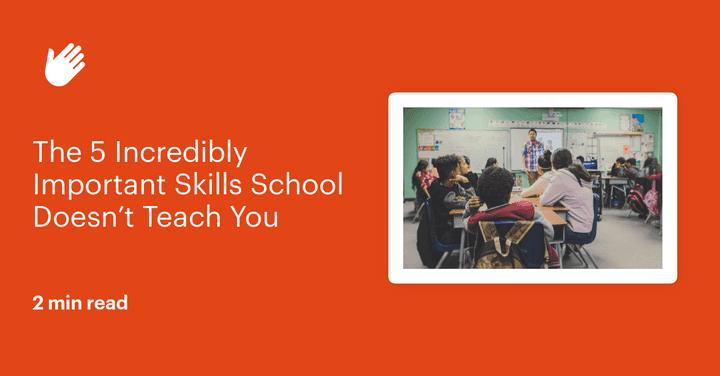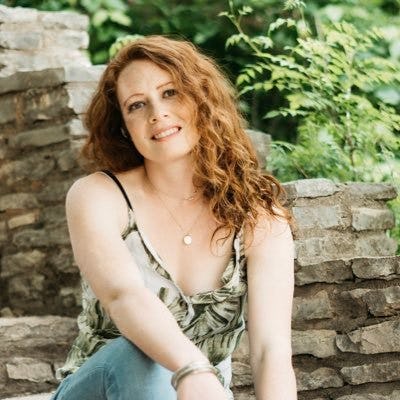The 5 Incredibly Important Skills School Doesn’t Teach You

Our education methods aren't working.
We're using industrial-era education practices to prepare ourselves for an internet-era world. It's incredibly broken, and we're suffering for it.
Here's what we need to be learning at school instead:
Critical thinking
Most people go through their entire lives learning only how to parrot other people's ideas, not how to have their own. But the world is a conversation, not a chorus.
Your job isn't to memorize what someone else thinks. It's to draw your own conclusions.
How to formulate good questions
With information everywhere, your barrier to access becomes your ability to ask good questions.
A well-phrased google query or question in the replies can unlock any information you need. The key is knowing how to be specific about the knowledge you seek.
Information synthesis
Information synthesis is more important than data retention.
Facts are not equal to knowledge, but that’s what we grow up thinking. We’re tested based on our ability to memorize facts. When we get good grades for memorizing things, it reinforces our misunderstanding of what’s important.
But, we live in an information-rich world. We don't need to be walking encyclopedias. We need to know how to use knowledge. Synthesizing ideas is far more powerful than rote memorization.
How to vet ideas and takes
Information is overwhelmingly accessible. Anyone can go viral.
But, everyone has a bias, and reach does not equate to quality.
Learning to reverse engineer how someone came to a conclusion is important, so you can decide what you agree with – and what you don't.
Tools for thinking
Mental models, first principles thinking, and other tools for critical reasoning are incredibly valuable.
We grow up being taught what to think, not how to think. But success is actually derived from good thinking practices.
Knowing where to start
Information in the 21st century is everywhere. Anyone can become well-educated, all on their own.
But most people have no idea where to start.
The above practices are a good jumping-off point — and the work we’re doing at Rebel Educator will give you better ideas on education that challenge the traditional ways we were taught.
This post is an adapted and expanded version of my Tweet thread.
Thrive in the information age
Traditionally, the more information you could collect and understand, the better decisions you could make. However, there can be too much of a good thing.

Hannah Frankman
Founder of rebelEducator, a resource hub for parents who want to create a better education for their kids.